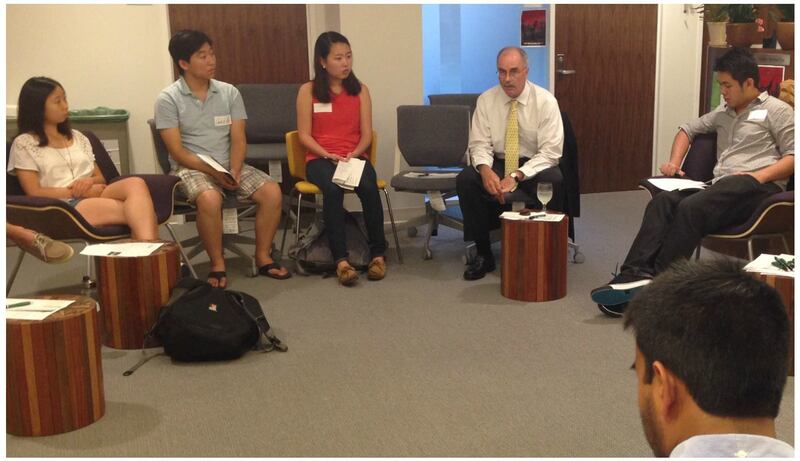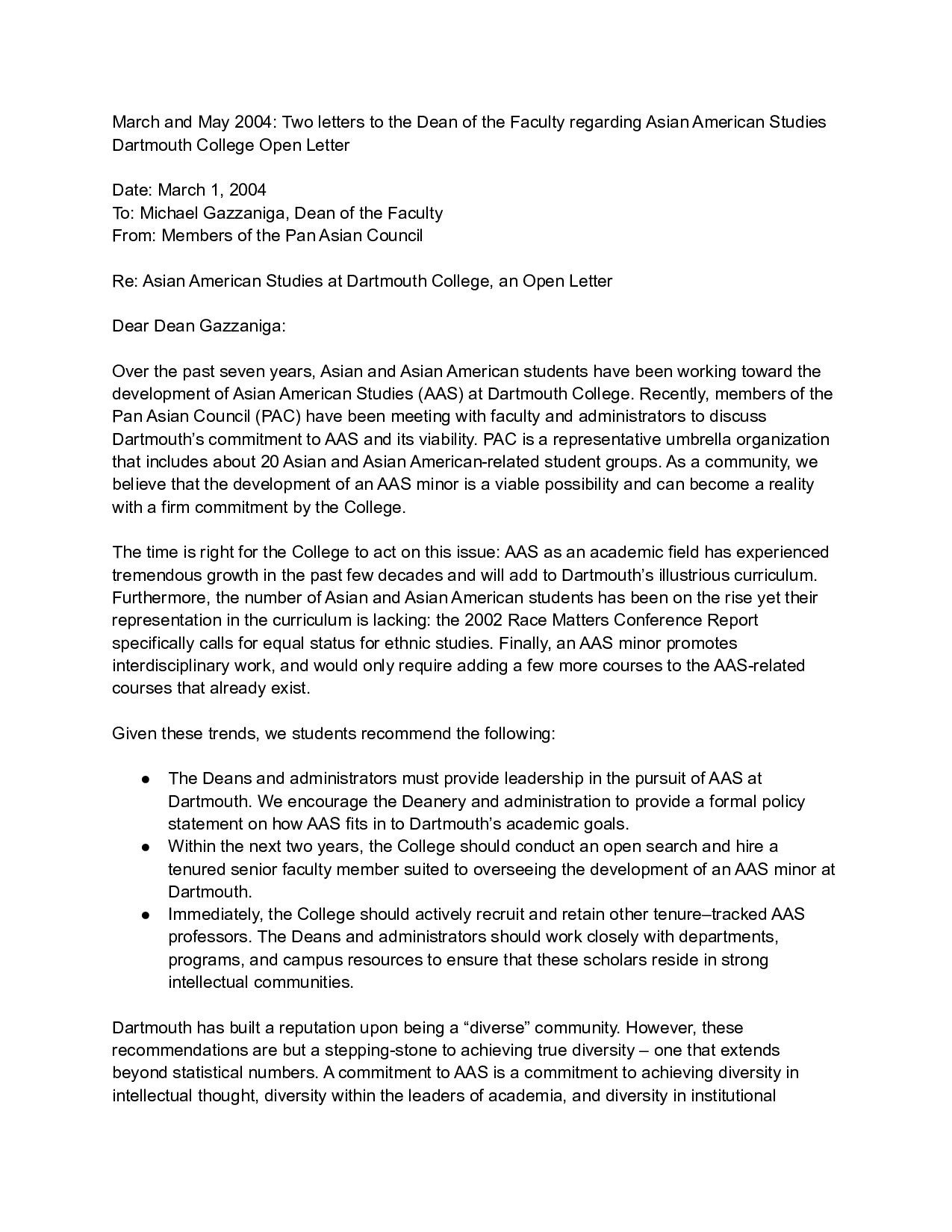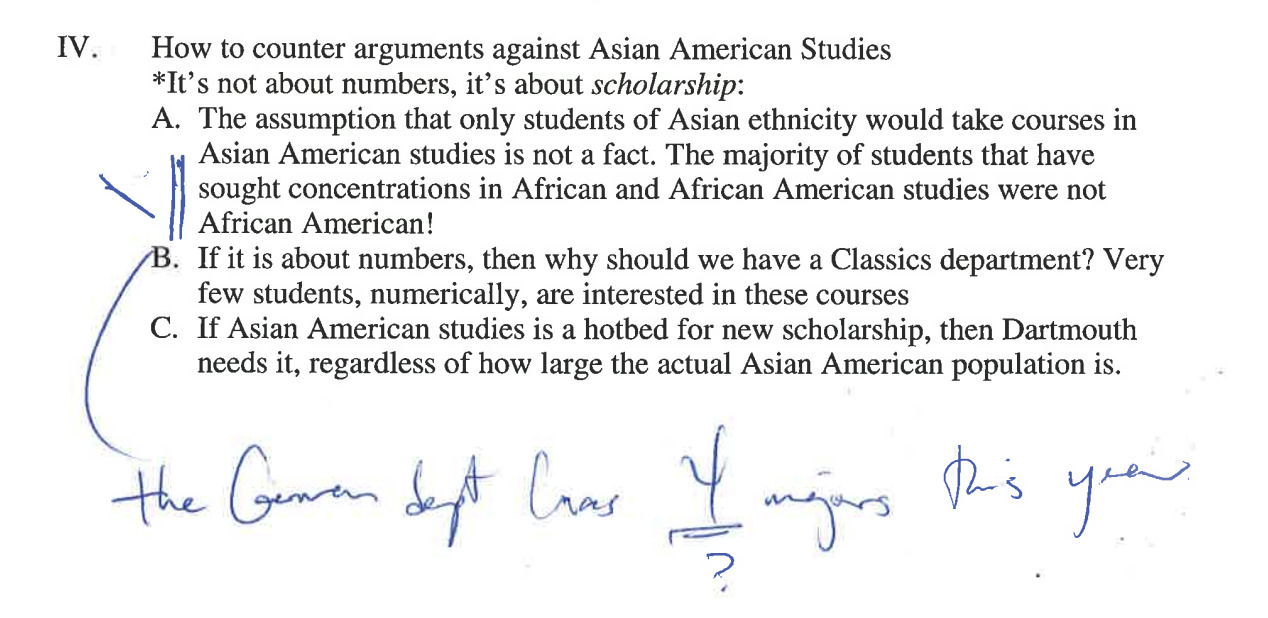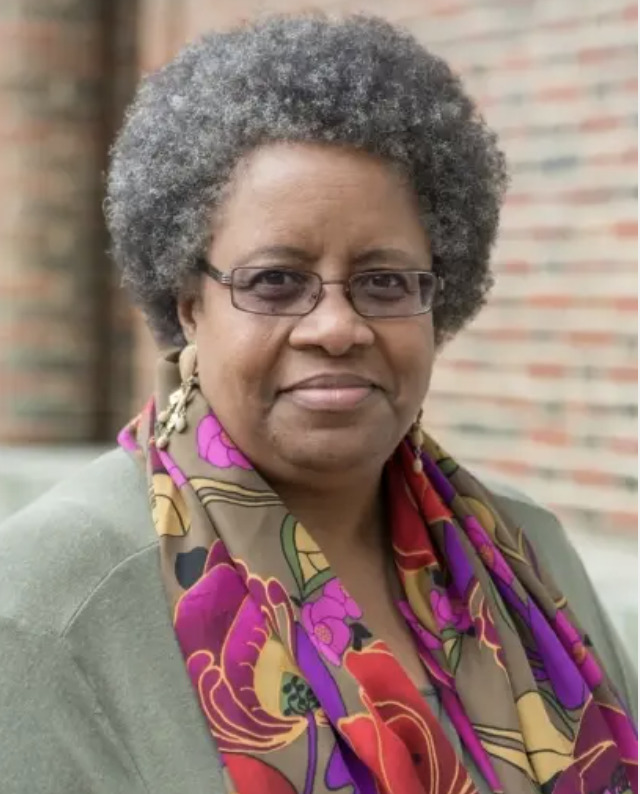Administrative Barriers to Asian American Studies
After nearly three decades of activism, why is it that Asian American Studies still does not exist at Dartmouth?
In 2004, administrators responded to the Pan-Asian Council's open letter to the Dean of the Faculty demanding Asian American Studies, stating that the administration is actively working to establish an Asian American Studies minor. Deans Grenoble and Mastaduno announced the creation of a committee to study the feasibility of implementing the program in addition to the new search for a new tenure-track faculty member in the field.
“After a seven-year struggle including countless meetings with department chairs, deans and administrators, students advocating for the creation of an Asian-American studies minor may have finally achieved their goal." College administrators will begin the search for a tenure-track Asian-American studies professor this fall, Associate Dean of the Faculty Lenore Grenoble announced recently.”
Article from The Dartmouth, July 2004: "College plans for Asian-American studies"
Following both the 2021-2022 Asia/America@Dartmouth Action Plan organized by faculty members and the petition organized by students through the Dartmouth Asian American Studies Collective, the story from two-decades prior rewrites itself as administrators once again make the same promises as they did before. After lengthy conversations between students, faculty, and administrators, talks of a "pilot program" for an Asian American Studies minor lingered but once again, never came into fruition. The January 2022 New York Times Article covering "The Fight for Asian American Studies" at Dartmouth includes a statement from Diana Lawrence, the associate vice president for communications, detailing the administrative response to the demands of students and faculty.
Ms. Lawrence, the Dartmouth spokeswoman, reiterated that new courses and programs of study are the domain of educators, not administrators.
“Faculty members who have an interest in — or who are currently teaching courses in — Asian American studies are exploring the possibility of developing an Asian American studies minor, including assessing the number of established course offerings in this area and how many additional courses would need to be offered to constitute a robust minor,” she wrote in an email. Dartmouth also noted that a search is underway “for a faculty member in Asian American literature.”
Now in 2023, Dartmouth is finally welcoming two new senior English hires, both of whom are prominent Asian Americanists. However, the same issues still continue to arise as substantial barriers to the development of Asian American Studies at Dartmouth. Barriers often cited by administrators include the issue of faculty tenure lines, student interest, scarce resources, and "inexperience" with the process of developing a new program or department.
Chicken & Egg #1: Fallacy of Tenure Lines
A major barrier to the implementation of Asian American Studies at Dartmouth is the lack of tenure lines for Asian Americanist faculty. In response to the recurring demands for Asian American Studies over the last three decades, administrators often say that they are “actively searching” for Asian American Studies faculty members. However, another barrier cited by administrators during the hiring process is funding. According to their argument, there is simply not enough funding for a new tenure line. And thus, a fallacy quickly emerges—Dartmouth needs an Asian American Studies program to house tenure-track faculty, but at the same time, needs tenured faculty to help build the program itself. Without doing one or the other, we remain in a state of gridlock as the fallacy of tenure lines remains an easy scapegoat to cite as a major roadblock to the development of the program. In a 2004 article from The Dartmouth titled “College debates Asian American studies,” Professor Vernon Takeshita states that "everything is contingent on an increase in faculty…student interest in the classes is not a problem, but a program can not exist without a faculty to teach the topic." Professor Takeshita’s statement from nearly twenty years ago still rings true today, as echoed by Professor Eng Beng Lim in another article from June 2021.
“Until the College actually invests in Asian American professors, there will be no robust Asian American Studies curriculum,” [Lim] said. “It's almost like a chicken and egg question: How do you offer Asian American studies anything when we simply do not have institutional investment in this field?”
Professor Eng Beng Lim in an article from The Dartmouth, June 2021
Chicken & Egg #2: Fallacy of Student Interest
The issue of student interest is another common point of contention: Are students even interested in Asian American Studies? The argument often goes that without adequate student interest, it is difficult to justify funneling energy and resources toward creating an Asian American Studies program. However, another fallacy quickly surfaces: How are students supposed to understand what they are missing out on without given the opportunity to learn about Asian American Studies? In our interviews with recent alumni and also in conversations with current students from this class and beyond, a similar sentiment emerges. Once exposed to the subject, Asian Americans we talked to often cited a crucial change in perspective and continued to pursue more classes related to Asian American Studies to better understand their own identities and the history of their communities.
Morna Ha ‘04 said that she had never studied Asian American Studies before and was pushed to think about “place and Asian American identity in general” for the first time upon coming to Dartmouth. Ha cites History 32: Asian American History taught by Professor Vernon Takeshita and an Asian American Poetry and Literature class taught by Professor Woon Ping Chin as “very formative” experiences from her time at Dartmouth.
“That was the first time I…understood where Asian Americans stood in the larger landscape… and how policy and law and race…shaped how we were able to live in this country.”
Morna Ha '04 on HIST 32: Asian American History with Professor Vernon Takeshita
Karen Zheng ‘22, an aspiring writer and poet who studied English and Creative Writing, said that she was “hooked on this journey” of exploration after taking Professor Sujin Eom’s class on “Travel, Migration, and Diaspora in the Transpacific Asias” through the Asian Societies, Cultures, and Languages Program. As an English and Creative Writing major, she spoke of other classes such “Contemporary Queer and Trans Asian American Poetry” and “Narratives of Un-belonging: Bad Asians, Queer Texts” as having given her a deeper understanding of her own role & responsibility not just in the institution, but in writing. Karen told us that she “would be a completely different person” if she hadn’t taken those classes as she would “still be living in blissful ignorance.”
"The assumption that only students of Asian ethnicity would take courses in Asian American studies is not a fact. The majority of students that have sought concentrations in African and African American studies were not African American!”
Sociology Professor Deborah King in conversation with the Asian American Task Force, 2002.
The argument that there is a "lack of student interest" in Asian American Studies is simply untrue. The few Asian American Studies related courses taught each year have all had substantial waitlists, indicating a high demand. Citing lack of student interest as a counterargument against Asian American Studies effaces the inherent value of ethnic studies as an academic discipline. Asian American Studies is not only crucial for students of Asian descent to understand the historical and situational context of the Asian American community, but is equally important for everyone to learn about a crucial aspect of American history that has been historically excluded from our educational system.
"AAS is not a community issue, but a campus issue pertaining to Dartmouth's academic mission," Choi said. "Dartmouth promises the students an education that prepares students to appreciate differences and similarities among all societies, and AAS should be an integral part of that mission."
Marie Choi '06, in a 2004 article from The Dartmouth: "College debates Asian American program"




